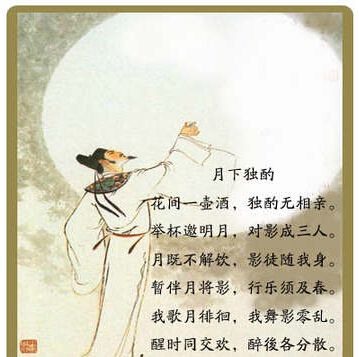BBC:21世纪最优秀的12本小说 上
|
Junot Díaz, The Brief Wondrous Life of Oscar Wao (2007) The winner in this BBC Culture critics' poll is Junot Diaz's first novel, about New Jersey ghetto-nerd Oscar, who dreams of being the Dominican-American Tolkien and finding love. It also was named as the number-one book by the most critics. "It is a big deal for me to fall in love with a book when its DNA is science fiction, fantasy and testosterone," says Elizabeth Taylor, The Chicago Tribune's literary editor-at-large. "This was only the second book by a Latino author to receive the Pulitzer Prize in fiction," notes critic and author Rigoberto Gonzalez. "Oscar Wao reaffirmed the strong connections Latinos maintain with their ancestral homeland's culture, language and history. It also re-energised these questions: Who is American? What is the American experience?" (Riverhead) Edward P Jones, The Known World (2003) Set in 1855 on the plantation of Henry Townsend - born a slave, now a slave-owner - The Known World is a triumph of empathy, immersing readers in a complex moral time without making simple judgments. Facing an early death, Townsend ponders the future of his 50-acre Virginia plantation and the slaves he treats the way his former owner, now his mentor, taught him. "In my reading, The Known World is the best American novel published in the 21st Century - a stunning work about humans experiencing and surviving American slavery," notes critic Walton Muyumba, author of The Shadow and the Act. C Max Magee, founder and editor of The Millions writes, "Jones's novel has an epic, complex sweep and takes an unflinching and engrossing view of America's messy history." (Amistad) Hilary Mantel, Wolf Hall (2009) Mantel's boldly reimagined saga of 16th Century Europe, told from the perspective of Thomas Cromwell, won the Man Booker and National Book Critics Circle awards, was adapted to the stage and has been filmed as a new BBC miniseries. "The brilliance of retelling an oft-told tale is beautifully illustrated in Mantel's flawless examination of power through the rise of Thomas Cromwell," notes critic Karen R Long. Mary Ann Gwinn, Seattle Times book editor and co-host of Well Read TV, writes: "I have never felt so completely catapulted into a character's mind, not to mention a long ago and far away place." Mantel's sequel, Bring in the Bodies, also gathered votes. (Picador) Marilynne Robinson, Gilead (2004) The Rev John Ames, a small-town Iowa minister, describes his life and anti-slavery heritage to his young son in dazzling lyrical language in this first instalment of Robinson's trilogy (along with Home and Lila)."I can't think of a living novelist who writes more seriously and profoundly about religious faith," writes critic and author Dawn Raffel, who ranked Gilead first on her list. "Robinson is both an 'ideas' writer and an exquisite prose stylist, investigating the big questions within the intimate space of family and community. She is also a supremely good storyteller." Karen R Long, former book editor of the Cleveland Plain Dealer who now manages the Anisfield-Wolf book awards, adds, “This multi-generational story inculcates a desire for transcendence, and makes a case for spiritual life in the 21st Century - its own kind of miracle. Gilead will be read in 100 years.” (Picador) Jonathan Franzen, The Corrections (2001) Franzen's edgy multigenerational family saga, winner of a US National Book Award, was among the first novels to capture the zeitgeist of the century's first decade. As Alfred and Enid Lambert and their three adult children gather at the end of the 20th Century for "one last Christmas", the father's Parkinson's disease progresses, and the US is on the verge of economic meltdown. "The Correction, when it finally came, was not an overnight bursting of a bubble but a much more gentle let-down, a year-long leakage of value from key financial markets," writes Franzen. "Franzen secured his place as a major American writer." Laurie Hertzel, senior books editor of the Minneapolis Star-Tribune adds, "This big, sprawling, fat novel touches on some of the most important themes of the early years of this millennium - economic uncertainty, the conflicts between parents and their drifting middle-aged children and the enormous issues of an aging society past its prime. He does it with great storytelling and a lot of humour." (Picador) Michael Chabon, The Amazing Adventures of Kavalier & Clay (2000) Joe Kavalier, a Houdini-like escape artist, smuggles himself out of Nazi-occupied Prague in 1939 and ends up in New York City. With his Brooklyn cousin Sammy Clay he invents a superhero character called the Escapist and launches the golden age of comic books. "Chabon's capacious, propulsive and many-storied novel is exquisitely written, emotionally rich and historically and morally profound," says Booklist senior editor Donna Seaman, who made the Pulitzer Prize winner her number-one choice. "It can also be seen as a bridge between the 20th and 21st centuries in its perspective on WWII and the birth of comic-book superheroes as a new. Chabon's novel has greatly influenced other outstanding works of 21st Century fiction. But The Amazing Adventures of Kavalier & Clay is also a timeless inquiry into our tragic proclivity for hate and war, our abiding need for stories and our persistent longing for magical powers and transcendence." (Random House) |








